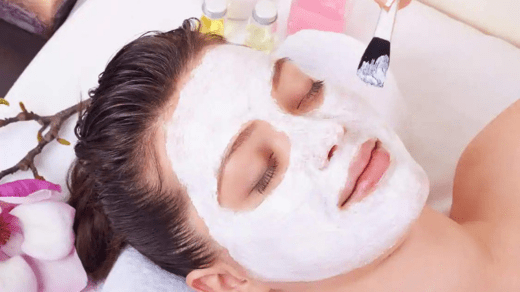
Certainly! Here are 30 points along with their respective pros and cons for summer beauty essentials focused on SPF and sun protection:
Summer Beauty Essentials: SPF and Sun Protection
Understanding SPF and Sun Protection:
- Sunscreen Basics:
- Pro: Sunscreen protects the skin from harmful UV rays, preventing sunburn and skin damage.
- Con: Choosing the right sunscreen can be overwhelming due to various SPF levels and formulations.
- Broad-Spectrum Protection:
- Pro: Broad-spectrum sunscreen guards against both UVA and UVB rays, offering comprehensive protection.
- Con: Not all sunscreens provide broad-spectrum coverage.
- SPF Ratings:
- Pro: SPF (Sun Protection Factor) indicates the level of protection against UVB rays.
- Con: A higher SPF doesn’t necessarily mean significantly longer protection.
- UV Radiation Risks:
- Pro: UV radiation can cause sunburn, premature aging, and increase the risk of skin cancer.
- Con: Sun damage accumulates over time and may not be immediately visible.
- Sun Protection Accessories:
- Pro: Accessories like wide-brimmed hats, sunglasses, and sun-protective clothing complement sunscreen.
- Con: Full sun protection may require additional items and planning.
Choosing the Right Sunscreen:
- Skin Type Considerations:
- Pro: Sunscreens are available for different skin types, including sensitive and oily skin.
- Con: Finding the right sunscreen for your skin type may involve trial and error.
- Water-Resistant Sunscreen:
- Pro: Water-resistant sunscreens stay effective even after swimming or sweating.
- Con: Reapplication is necessary after water activities.
- Mineral vs. Chemical Sunscreen:
- Pro: Mineral sunscreens (zinc oxide and titanium dioxide) provide physical barrier protection.
- Con: Some mineral sunscreens may leave a white cast on the skin.
- Spray vs. Lotion:
- Pro: Spray sunscreens are convenient for application, while lotions offer better coverage.
- Con: Spray sunscreens can be inhaled if not applied carefully.
- Reef-Friendly Sunscreen:
- Pro: Reef-friendly sunscreens are less harmful to coral reefs and marine life.
- Con: They may be less readily available or more expensive.
- Expiration Dates:
- Pro: Checking sunscreen expiration dates ensures its effectiveness.
- Con: Expired sunscreen may provide inadequate protection.
Application and Usage:
- Proper Application:
- Pro: Applying sunscreen generously and evenly ensures adequate coverage.
- Con: Rushed or uneven application may leave areas unprotected.
- Reapplication Frequency:
- Pro: Reapplying sunscreen every 2 hours or after swimming maintains protection.
- Con: Remembering to reapply can be challenging.
- Sunscreen on Cloudy Days:
- Pro: UV rays penetrate clouds, so sunscreen is essential even on overcast days.
- Con: Cloudy weather can give a false sense of security.
- Sun Protection Clothing:
- Pro: Sun-protective clothing provides an additional layer of defense against UV rays.
- Con: Special clothing may not be readily available.
Sun Safety:
- Sun Avoidance:
- Pro: Avoiding direct sun exposure during peak hours (10 am to 4 pm) reduces UV exposure.
- Con: Restricting outdoor activities during peak hours can be inconvenient.
- Seeking Shade:
- Pro: Staying in the shade when outdoors offers protection from intense sunlight.
- Con: Finding shade may not always be practical.
- UV-Blocking Umbrellas:
- Pro: UV-blocking umbrellas provide portable shade for extended outdoor activities.
- Con: Carrying an umbrella may not be convenient for everyone.
- Temperature vs. UV Intensity:
- Pro: High temperatures don’t necessarily correlate with strong UV intensity, so protection is still needed on cooler days.
- Con: Relying solely on temperature can lead to inadequate protection.
Health and Beauty Benefits:
- Skin Health:
- Pro: Sun protection helps maintain healthy, youthful-looking skin.
- Con: Long-term benefits may not be immediately visible.
- Reduced Skin Cancer Risk:
- Pro: Consistent sun protection lowers the risk of skin cancer.
- Con: Skin cancer risks accumulate over time and may not be an immediate concern.
- Preventing Sunburn:
- Pro: Effective sun protection prevents painful and uncomfortable sunburn.
- Con: Sunburn can still occur despite precautions.
Challenges and Considerations:
- Tanning vs. Sun Protection:
- Pro: Sun protection promotes skin health, while tanning increases the risk of skin damage.
- Con: Achieving a tan may still be a beauty goal for some individuals.
- Complexion Concerns:
- Pro: Sun protection helps prevent dark spots, uneven skin tone, and premature aging.
- Con: Correcting existing skin concerns may require additional skincare products.
- Tan vs. Fair Skin:
- Pro: Sun protection is essential for individuals with all skin tones, regardless of tanning abilities.
- Con: Fair-skinned individuals are more susceptible to sunburn.
- SPF Makeup:
- Pro: SPF makeup products offer additional sun protection when reapplied regularly.
- Con: Relying solely on SPF makeup may not provide adequate coverage.
- Allergic Reactions:
- Pro: Hypoallergenic sunscreens are available for those with sensitive skin.
- Con: Skin reactions to certain sunscreen ingredients can still occur.
- Cost and Availability:
- Pro: Sunscreen is available at various price points, making it accessible to many.
- Con: High-quality sunscreens may be more expensive.
- Sunscreen Application Assistance:
- Pro: Applying sunscreen to hard-to-reach areas with a partner’s assistance ensures full coverage.
- Con: Not everyone has someone available to help with sunscreen application.
- Educational Resources:
- Pro: Learning about sun protection and its importance empowers individuals to make informed decisions.
- Con: Lack of awareness can lead to inadequate sun protection.
Incorporating SPF and sun protection into your daily routine is essential for maintaining skin health and preventing sun damage. While it may require some adjustments and education, the long-term benefits of sun protection far outweigh the cons. Protecting your skin from the sun’s harmful rays is a key element of maintaining a healthy and youthful appearance.


